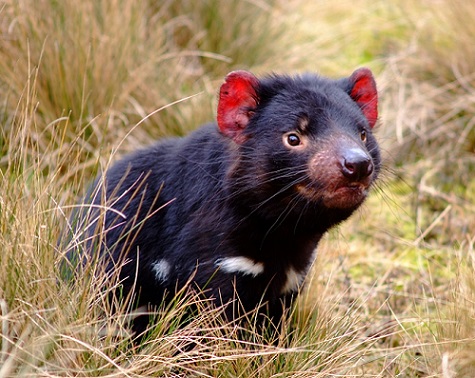Leading Ecologist Dr Euan Ritchie joins National Threatened Species summit
Media releaseEcology expert Dr Euan Ritchie will argue the case for rewilding of native apex predators such as the dingo and Tasmanian devil at the inaugural national Threatened Species Summit tomorrow.
Dr Ritchie is one of only 21 Australian experts invited to present at this landmark event to be held at Melbourne Zoo and streamed live as an interactive webcast.
Dr Ritchie explained that dingoes and Tasmanian devils perform vital roles in the ecosystem and allowing populations to recolonise habitats where they once occurred could be an effective way of restoring fragile ecosystems.
"Recent evidence suggests that the reintroduction of dingoes, in particular, would produce a cascade of benefits by limiting both native and introduced herbivores – think kangaroos and goats – and exotic predators, namely foxes and cats," he said.
"This would also have a profound flow-on effect for other smaller species and vegetation. The loss of dingoes has contributed to the extinction and/or endangerment of small marsupials and rodents over much of Australia."
Dr Ritchie said Australian ecosystems have become fragile and degraded and had a low ability to respond to challenges mainly due to the loss of native species, the functions they fulfilled, the loss of biodiversity, the invasion of pests and the consequent changes this wreaked on habitat.
"In the Australian tropics alone, more than 30 native species of mammal are at risk owing to inappropriate fire regimes, livestock grazing and predation by feral cats," he said.
"The decline of the native apex predator the Tasmanian devil might increase extinction risk of many species formerly abundant on mainland Australia and Tasmania. Evidence is coming to hand that suggests devils may help limit feral cats, so losing devils could be a disaster."
"I would argue that this grave situation justifies seriously considering management programs where apex predators are reintroduced or allowed to recolonise habitats where they once occurred."
Dr Ritchie acknowledged some livestock producers would have concerns about the potential impact of the predators on their stock.
"But, we believe that livestock guardian animals present a viable option for protecting stock against these apex predators, they may also help deter smaller predators like cats and foxes."
Dr Ritchie also cautioned that apex predators could in some circumstances increase the risk to threatened or endangered prey species, particularly those living in habitats already degraded by humans.
"In areas where the risk to threatened species is too great it would be worth considering management that simulates the apex predators' effects on the local habitat," he said.
Chaired by the Threatened Species Commissioner, Gregory Andrews, the Threatened Species Summit brings together State and Territory Governments, Natural Resource Management organisations, businesses, trusts, scientists and non-government organisations.
Minister for the Environment, the Hon Greg Hunt MP, will launch a Threatened Species Strategy at the summit.
Share this story
 Tasmanian Devil (Sarcophilus harrisii)
Tasmanian Devil (Sarcophilus harrisii)
